|
FOSSIL
FUELS
(FOOLS)
Please use our A-Z
INDEX to navigate this
site OR SEE
HOME
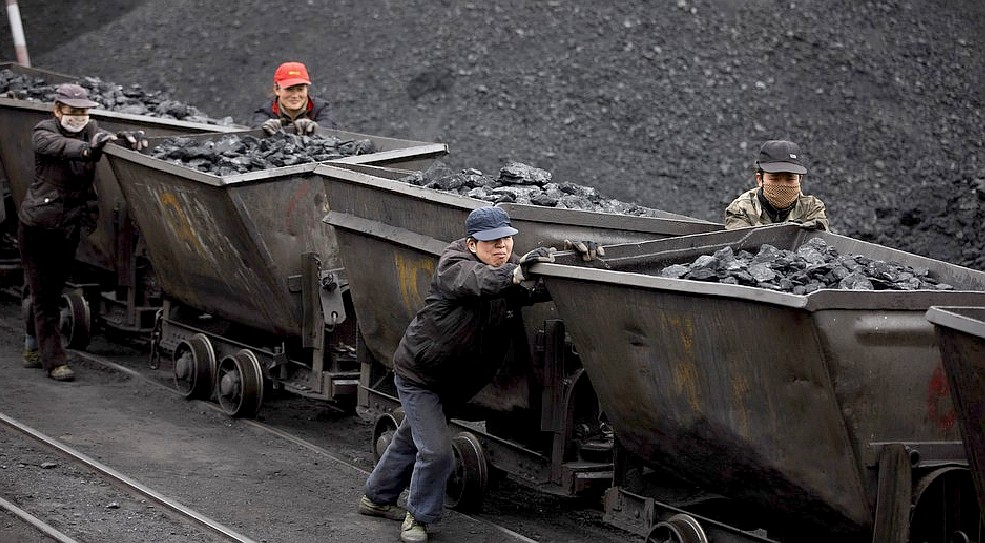
IT
KILLS US GETTING IT OUT -
Mining is traditionally a dangerous occupation. If a mine
collapse does not get you, the carcinogenic dust will do you
no good.
THE GUARDIAN 21 JULY 2022 - REVEALED: OIL SECTORS STAGGERING $3bn A DAY PROFITS FOR LAST 50 YEARS
The oil and gas industry has delivered $2.8bn a day in pure profit for the last 50 years, a new analysis has revealed.
The vast total captured by petrostates and fossil fuel companies since 1970 is $52tn, providing the power to “buy every politician, every system” and delay action on the climate crisis, says Prof Aviel Verbruggen, the author of the analysis. The huge profits were inflated by cartels of countries artificially restricting supply.
The analysis, based on World Bank data, assesses the “rent” secured by global oil and gas sales, which is the economic term for the unearned profit produced after the total cost of production has been deducted.
The study has yet to be published in an academic journal but three experts at University College London, the London School of Economics and the thinktank Carbon Tracker confirmed the analysis as accurate, with one calling the total a “staggering number”. It appears to be the first long-term assessment of the sector’s total profits, with oil rents providing 86% of the total.
Emissions from the burning of fossil fuels have driven the climate crisis and contributed to worsening extreme weather, including the current heatwaves hitting the UK and many other Northern hemisphere countries. Oil companies have known for decades that carbon emissions were dangerously heating the planet.
“I was really surprised by such high numbers – they are enormous,” said Verbruggen, an energy and environmental economist at the University of Antwerp, Belgium, and a former lead author of an Intergovernmental Panel on Climate Change report.
“It’s a huge amount of money,” he said. “You can buy every politician, every system with all this money, and I think this happened. It protects [producers] from political interference that may limit their activities.”
The rents captured by exploiting the natural resources are unearned, Verbruggen said: “It’s real, pure profit. They captured 1% of all the wealth in the world without doing anything for it.” The average annual profit from 1970-2020 was $1tn but he said he expected this to be twice as high in 2022.
The profit-grabbing is holding back the world’s action on the climate emergency, he said: “It’s really stripping money from the alternatives. In every country, people have so much difficulty just to pay the gas and electricity bills and oil [petrol] bill, that we don’t have money left over to invest in renewables.”
Some of the rents go to governments as royalties, says Prof Paul Ekins, at University College London: “But the fact remains that, over the last 50 years, companies have made a huge amount of money by producing fossil fuels, the burning of which is the major cause of climate change. This is already causing untold misery round the world and is a major threat to future human civilisation.
“At the very least these companies should be investing a far greater share of their profits in moving to low-carbon energy than is currently the case. Until they do so their claims of being part of the low-carbon energy transition are among the most egregious examples of
greenwashing.”
Mark Campanale, at Carbon Tracker, said: “Not only is the scale of these rents eye-watering, but it is salient to note that, in the midst of a cost of living crisis caused by record oil and gas prices, this flow of money to a relatively small number of petrostates and energy companies is set to double this year. Shifting to a carbon-neutral energy system based on renewables is the only way to end this madness.”
The Guardian revealed in May that the world’s biggest fossil fuel firms are planning scores of “carbon bomb” oil and gas projects that would drive the climate past internationally agreed temperature limits with catastrophic global impacts. The fossil fuel industry also benefits from subsidies of $16bn a day, according to the
International Monetary
Fund.
Verbruggen’s analysis used the World Bank’s oil rent and gas rent data, which the bank compiles country-by-country and is expressed as percentage of global GDP. He then multiplied this by the World Bank’s global GDP data and adjusted for inflation to put all the figures in 2020 US dollars.
Verbruggen said oil-rich nations, such as Russia and those in the OPEC cartel, including Saudi Arabia, kept rents high by restricting supply: “They change the fundamentals of the markets.” Military action, such as the US-led invasion of Iraq in 2003, and political action, such as the embargo on oil exports from Iran, had also increased the rents, he said. If all available oil and gas could be freely supplied to the market, the price of conventional oil would be $20-30 a barrel, Verbruggen said, compared with about $100 today.
There is far more oil, gas and coal in existing reserves than can be burned if the world is to limit global heating to 1.5C, the target agreed by nations in the Paris climate agreement in 2015. Campanale said: “To keep to 1.5C, this means [international oil companies alone] forgoing around $100 trillion of potential revenues. You can see why oil oligarchs and nations controlled by political elites want to keep their fossil fuel rents, the source of their power.”
May Boeve, the head of campaign group 350.org, said: “These profits have enabled the fossil fuel industry to combat all efforts to switch our energy systems. We have to dismantle such rent-seeking systems and build our future based on accessible and distributed renewable energy that is more sustainable and democratic in every way.”
DON'T
MENTION COAL OR OIL
Unbelievably,
the Paris Agreement
did not mention: Coal, Gas or
Oil!
WTF! The latest Glasgow
Climate Pact, rectifies this in part, with Narendra Modi
showing his true colours for India, negotiating hard to water
down the language. He's a naughty boy, and would surely be
regarded as 'Free Range Rude' or otherwise a social
liability,
etc., by Hannibal
Lecter, for putting so many lives at risk of lung cancer
in India and other countries, along with his smog ally, Xi
Jinping. These are the biggest undertakers in the world,
purveyors of early
deaths and funerals, not only in their country, but
exporters of early grave policies to third parties who have no
direct control over such pyres.
How
can you negotiate a "Fossil Fuel Non-Proliferation Treaty,"
or anything meaningful like that without going to the root
cause. The reason is because the Climate
Nazis
had/have employed Deniers
to keep such dialogue off the agenda at events such as FLOP
26. Let's hope that with increased pressure from lobbyists
and peaceful protests, that COP27
will not be another cop-out.
The
UN is weak and frightened of big oil and coal dollars, and
fearful of losing their jobs. So they bow to traders in dirty
black death fuels. Kiss some butt, and try to elicit some
promises to assuage the electorate that something is being
done - when in fact it is all talk. As
Greta Thunberg says: Blah, blah, blah. It's 'greenwash' smoke and mirrors, to
get the same politicians re-elected and continue: Business as
Usual.
THE
DIRTIEST DOZEN FOSSILS - WORLD'S WORST HUMAN RIGHTS VIOLATORS
FOOLS
&
DENIERS
|

Chinese
President
Xi
Jinping
|

US
President
Joe
Biden
|

EU
President
Ursula
von der Leyen
|

Indian
PM
Narendra
Modi
|
|

Vladimir
Putin
Russian
PM
|

Japanese
PM
Fumio Kishida
|

Kim
Boo-kuym
South
Korean PM
|

Mohammed bin Salman
Saudi
Arabian Ruler
|
|

Justin
Trudeau
Canadian
PM
|

Jair Bolsonaro
Brazilian
PM
|

Joko Widodo
Indonesian
PM
|

Scott
Morrison
Australian
PM
|
If,
instead of spending $Millions on spin, the fossil fuel
corporations invested in hydrogen and electricity
infrastructure, we might get somewhere. But it is all about
the rich and powerful not relinquishing their dominance on the
energy markets. And they can afford to bribe the Dirty Dozen
and even bully the United Nations into staying away from
rhetoric that the public can easily understand - otherwise the
voters might see RED.
Heaven
forbid we start mentioning Human Rights such as the right to
life and protection from inhumane treatment, where thousands
are dying of hunger from desertification and displacement -
and then there is lung
cancer.
Fossil
fuels kick started our industrial revolution, powered steam
ships and generated electricity as we released the energy in
coal and later oil, to make things happen at a faster pace.
Cars and aircraft being an example of things we now take for
granted that pollute big time.
But
it was a brilliant time for engineers and town planners who
thought they could rely of this energy source without any
consequences. Because after all the world is a big place.
Surely humans could not alter the delicate ecological balance
of planet earth just by driving a few cars and lighting a few
home fires. Then came central heating. Sh*#%
Sadly,
we can. We did and we still are, even though we now know how
dangerous our excesses are to other species - and we are also
set for extinction if we do nothing to swap
fossil fuels for
clean renewable energy sources.
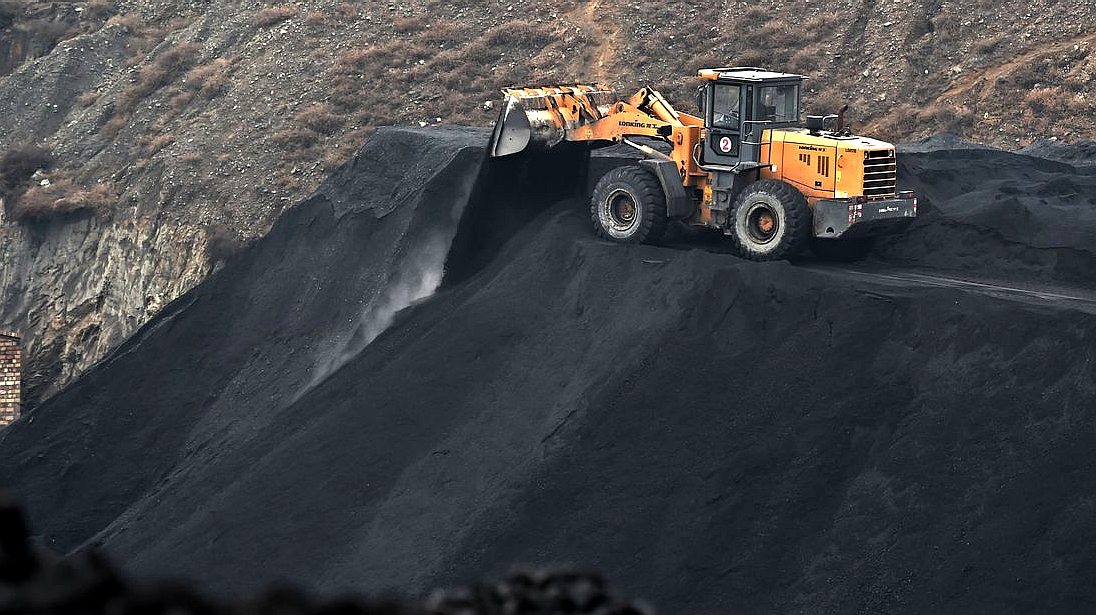
Fossil fuels are hydrocarbons, primarily coal, fuel oil or natural gas, formed from the remains of dead plants and animals.
The utilization of fossil fuels has enabled large-scale industrial development and largely supplanted water-driven mills, as well as the combustion of
wood or peat for heat.
Fossil fuel is a general term for buried combustible geologic deposits of organic materials, formed from decayed plants and animals that have been converted to crude oil,
coal, natural gas, or heavy oils by exposure to heat and pressure in the
earth's crust over hundreds of millions of years.
The burning of fossil fuels by humans is the largest source of emissions of
carbon dioxide, which is one of the
greenhouse gases that allows radiative forcing and contributes to
global warming.
A small portion of hydrocarbon-based fuels are biofuels derived from atmospheric carbon dioxide, and thus do not increase the net amount of
carbon dioxide in the atmosphere.
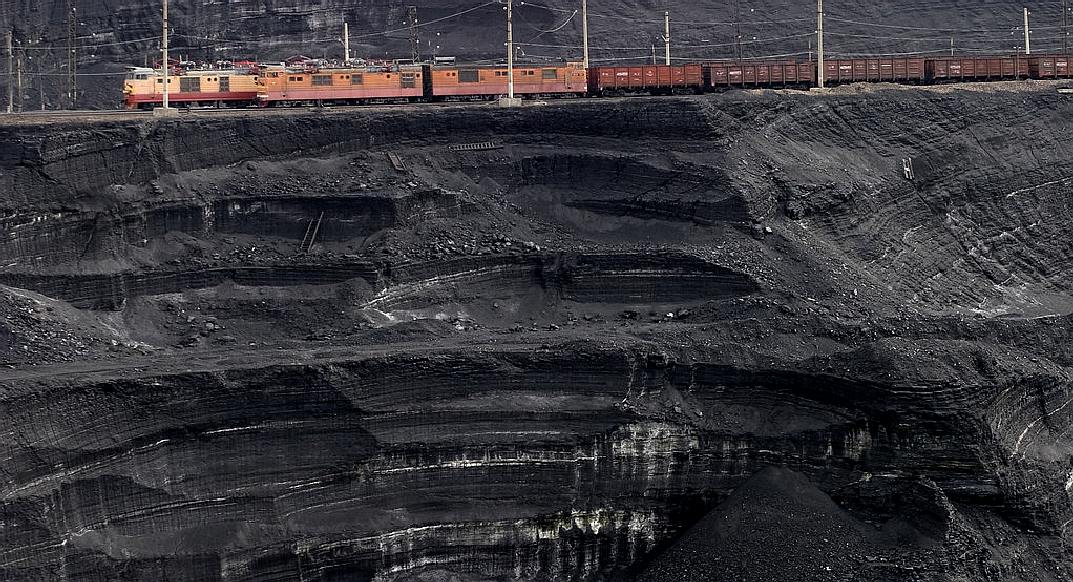
Generally speaking, oil and gas are formed from the organic remains of marine organisms which become entrained within sea-floor sediments. Coal, by contrast, is typically formed in non-marine settings from the remains of land vegetation.
Oil and gas formation begins with the accumulation of organics on the sea-floor; these are the dead remains of organisms living in the water column, such as microscopic plankton, which rain down on the sea floor below.
This will only occur in rather unusual settings, where the sea floor is stagnant such that there is no oxygen present to break the organic remains down and no sea-floor dwelling organisms present that might feed on the organics. A high sediment accumulation rate of may also help to bury the organics before the action of decay can break them down.
As the sediment pile becomes deeper the organics within it are subjected to heat and pressure which leads to formation of oil and then gas. For oil and gas extraction, it is important that the source rock is not 'over-cooked' or the hydrocarbons will be destroyed. There must be suitable reservoir-rock, such as a porous sandstone, into which the hydrocarbons can migrate and accumulate.
This must be overlain by an impervious cap-rock, such as a clay, which prevents the hydrocarbons from escaping to the surface. Finally, the geometry of the reservoir and cap-rock bodies must be such that the hydrocarbons become trapped; usually folding will suffice.
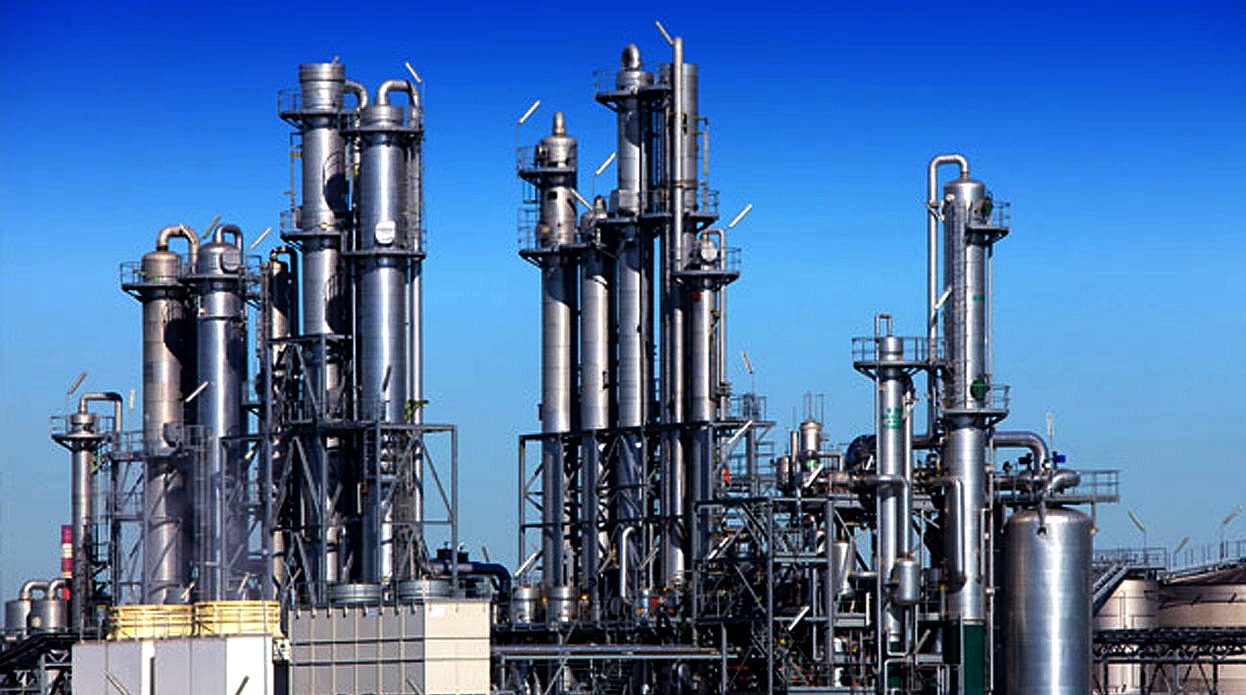
A fossil fuel is a fuel formed by natural processes, such as anaerobic decomposition of buried dead organisms, containing energy originating in ancient photosynthesis. The age of the organisms and their resulting fossil fuels is typically millions of years, and sometimes exceeds 650 million years. Fossil fuels contain high percentages of carbon and include petroleum, coal, and natural gas. Other commonly used derivatives include kerosene and propane. Fossil fuels range from volatile materials with low carbon to hydrogen ratios like methane, to liquids like
petroleum, to nonvolatile materials composed of almost pure carbon, like anthracite coal. Methane can be found in hydrocarbon fields either alone, associated with oil, or in the form of methane clathrates.
Fossil fuels are of great importance because they can be burned (oxidized to carbon dioxide and water), producing significant amounts of energy per unit mass. The use of coal as a fuel predates recorded history. Coal was used to run furnaces for the melting of metal ore. Semi-solid hydrocarbons from seeps were also burned in ancient times, but these materials were mostly used for waterproofing and embalming.
Commercial exploitation of petroleum began in the 19th century, largely to replace oils from animal sources (notably whale oil) for use in oil lamps.
Natural gas, once flared-off as an unneeded byproduct of petroleum production, is now considered a very valuable resource. Natural gas deposits are also the main source of the element helium.
Heavy crude oil, which is much more viscous than conventional crude oil, and oil sands, where bitumen is found mixed with sand and clay, began to become more important as sources of fossil fuel as of the early 2000s. Oil shale and similar materials are sedimentary rocks containing kerogen, a complex mixture of high-molecular weight organic compounds, which yield synthetic crude oil when heated (pyrolyzed). These materials have yet to be fully exploited commercially. With additional processing, they can be employed in lieu of other already established fossil fuel deposits. More recently, there has been disinvestment from exploitation of such resources due to their high carbon cost, relative to more easily processed reserves.
Prior to the latter half of the 18th century, windmills and watermills provided the energy needed for industry such as milling flour, sawing wood or pumping water, and burning wood or peat provided domestic heat. The widescale use of fossil fuels, coal at first and
petroleum later, to fire steam engines enabled the Industrial Revolution. At the same time, gas lights using natural gas or coal gas were coming into wide use. The invention of the internal combustion engine and its use in automobiles and trucks greatly increased the demand for gasoline and diesel oil, both made from fossil fuels. Other forms of transportation, railways and aircraft, also required fossil fuels. The other major use for fossil fuels is in generating electricity and as feedstock for the petrochemical industry. Tar, a leftover of petroleum extraction, is used in construction of roads.
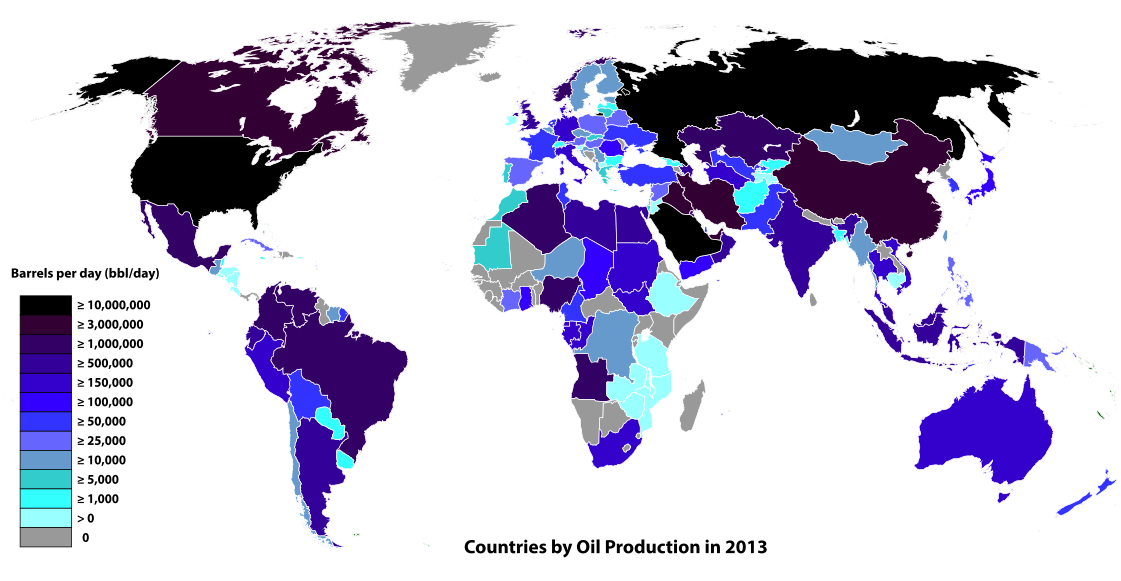
....
ENVIRONMENTAL
CONSIDERATIONS
The United States holds less than 5% of the world's population, but due to large houses and private cars, uses more than 25% of the world's supply of fossil fuels. As the largest source of U.S. greenhouse gas emissions, CO2 from fossil fuel combustion, accounted for 80 percent of [its] weighted emissions in 1998. Combustion of fossil fuels also produces other air pollutants, such as nitrogen oxides, sulfur dioxide, volatile organic compounds and heavy metals.
According to Environment Canada:
"The electricity sector is unique among industrial sectors in its very large contribution to emissions associated with nearly all air issues. Electricity generation produces a large share of Canadian
nitrogen oxides and sulphur dioxide emissions, which contribute to smog and acid rain and the formation of fine particulate matter. It is the largest uncontrolled industrial source of mercury emissions in
Canada. Fossil fuel-fired electric power plants also emit carbon dioxide, which may contribute to climate change. In addition, the sector has significant impacts on water and habitat and species. In particular, hydropower dams and transmission lines have significant effects on water and biodiversity."
According to U.S. Scientist Jerry Mahlman and USA Today: Mahlman, who crafted the IPCC language used to define levels of scientific certainty, says the new report will lay the blame at the feet of fossil fuels with "virtual certainty," meaning 99% sure. That's a significant jump from "likely," or 66% sure, in the group's last report in 2001, Mahlman says. His role in this year's effort involved spending two months reviewing the more than 1,600 pages of research that went into the new assessment.
Combustion of fossil fuels generates sulfuric, carbonic, and nitric acids, which fall to
Earth as acid rain, impacting both natural areas and the built environment. Monuments and sculptures made from marble and limestone are particularly vulnerable, as the acids dissolve calcium carbonate.
Fossil fuels also contain radioactive materials, mainly uranium and thorium, which are released into the atmosphere. In 2000, about 12,000 tonnes of thorium and 5,000 tonnes of uranium were released worldwide from burning
coal. It is estimated that during 1982, US coal burning released 155 times as much radioactivity into the atmosphere as the Three Mile Island accident.
Burning coal also generates large amounts of bottom ash and fly ash. These materials are used in a wide variety of applications, utilizing, for example, about 40% of the US production.
Harvesting, processing, and distributing fossil fuels can also create environmental concerns. Coal mining methods, particularly mountaintop removal and strip mining, have negative environmental impacts, and offshore
oil drilling poses a hazard to
aquatic
organisms. Fossil fuel wells can contribute to methane production via fugitive gas emissions. Oil refineries also have negative environmental impacts, including air and water pollution. Transportation of coal requires the use of diesel-powered locomotives, while crude oil is typically transported by tanker ships, each of which requires the combustion of additional fossil fuels.
Environmental regulation uses a variety of approaches to limit these emissions, such as command-and-control (which mandates the amount of pollution or the technology used), economic incentives, or voluntary programs.
An example of such regulation in the USA is the "EPA is implementing policies to reduce airborne mercury emissions. Under regulations issued in 2005, coal-fired power plants will need to reduce their emissions by 70 percent by 2018."
In economic terms, pollution from fossil fuels is regarded as a negative externality. Taxation is considered one way to make societal costs explicit, in order to 'internalize' the cost of pollution. This aims to make fossil fuels more expensive, thereby reducing their use and the amount of pollution associated with them, along with raising the funds necessary to counteract these factors.
According to Rodman D. Griffin, "The burning of coal and oil have saved inestimable amounts of time and labor while substantially raising living standards around the world". Although the use of fossil fuels may seem beneficial to our lives, this act is playing a role on global warming and it is said to be dangerous for the future.
Moreover, these environmental pollutions impacts on the human beings because its particles of the fossil fuel on the air cause negative health effects when inhaled by people. These health effects include premature death, acute respiratory illness, aggravated asthma, chronic bronchitis and decreased lung function. So, the poor, undernourished, very young and very old, and people with preexisting respiratory disease and other ill health, are more at risk.
ECONOMICS
Europe spent €406 billion on importing fossil fuels in 2011 and €545 billion in 2012. This is around three times more than the cost of the Greek bailout up to 2013. In 2012
wind energy in Europe avoided €9.6 billion of fossil fuel costs. The International Energy Agency estimated 2017 global government fossil fuel subsidies to have been $300 billion.
A 2015 report studied 20 fossil fuel companies and found that, while highly profitable, the hidden economic cost to society was also large.
The report spans the period 2008–2012 and notes that: "For all companies and all years, the economic cost to society of their CO2 emissions was greater than their after‐tax profit, with the single exception of
ExxonMobil in 2008."
Pure coal companies fare even worse: "the economic cost to society exceeds total revenue in all years, with this cost varying between nearly $2 and nearly $9 per $1 of revenue."
In this case, total revenue includes "employment, taxes, supply purchases, and indirect employment."
LINKS
& REFERENCE
https://www.msn.com/en-gb/news/world/revealed-oil-sector-s-staggering-3bn-a-day-profits-for-last-50-years/ar-AAZOKW1
https://www.britannica.com/science/global-warming

This
website is provided on a free basis as a public information service.
copyright © Climate Change Trust 2022. Solar
Studios, BN271RF, United Kingdom.
|

















